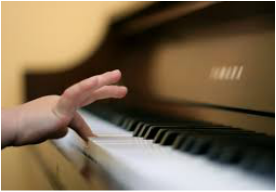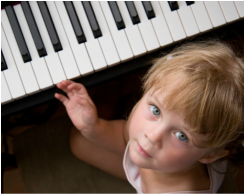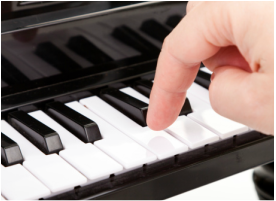Some Words from the Music Director
Dear friends,
Welcome to our group piano classroom. Some people may ask whether it is possible to teach several students at one time in this type of group setting. I doubted it myself when I was first introduced to a group piano classroom at the University of Northern Iowa (U.S.A). However, I soon observed how well my professor utilised this teaching method with excellent results. After one year with her, I had also learned this method of teaching piano in a group setting. Having experienced the method first hand, I have become convinced of its efficacy. I would like to introduce to you this method of teaching for beginners in groups. I believe parents will value the opportunity it offers for their child to begin learning piano, while making an effective use of teaching resources. Group study has the added benefit of building a sense of community through shared enjoyment. We offer our best wishes to our students in their new group classes.
Jessie Tang
Welcome to our group piano classroom. Some people may ask whether it is possible to teach several students at one time in this type of group setting. I doubted it myself when I was first introduced to a group piano classroom at the University of Northern Iowa (U.S.A). However, I soon observed how well my professor utilised this teaching method with excellent results. After one year with her, I had also learned this method of teaching piano in a group setting. Having experienced the method first hand, I have become convinced of its efficacy. I would like to introduce to you this method of teaching for beginners in groups. I believe parents will value the opportunity it offers for their child to begin learning piano, while making an effective use of teaching resources. Group study has the added benefit of building a sense of community through shared enjoyment. We offer our best wishes to our students in their new group classes.
Jessie Tang
Smart Starter CourseAge 4-6
Two year course Class maximum of 4 students 45-60 minute weekly lessons Starts from $450 per term ( 10 lessons) |
Junior Piano CourseAge 7-9
Two year course for older beginners Class maximum of 4 students 1 hour weekly lessons Starts from $550 per term (10 lessons) |
Adult Piano CourseAny age above 18
One year course Class maximum of 4 students 1 hour weekly lessons Starts from $550 per term (10 lessons) |



